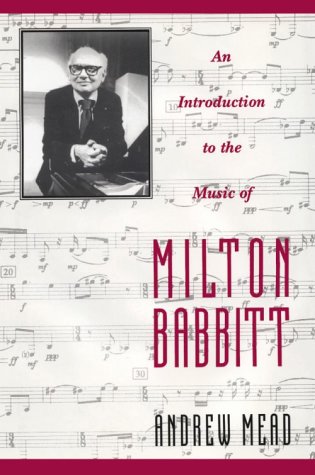Princeton Legacy Library
1 total work
In this celebration of Milton Babbitt's art, Andrew Mead explores the development of a central figure in contemporary American music. As a teacher and writer, Babbitt has influenced two generations of students, including such notable musicians as Stephen Sondheim and Donald Martino. He has helped establish the study of music theory as a serious academic pursuit, and his articles on Schoenberg, Stravinsky, and the twelve-tone system constitute a seminal body of research. But Babbitt is first and last a composer, whose works are, in Mead's words, "truly music to be heard." With Mead as a guide, we discover the strong emotional and expressive charge of Babbitt's music that is inextricably entwined with its structure.
Babbitt is a twelve-tone composer, unabashedly so, and it is precisely his profound understanding of Arnold Schoenberg's epochal insight that gives Babbitt's music its special quality. By examining the underlying principles of twelve-tone composition, Mead allows us to appreciate Babbitt's music on its own terms, as a richly varied yet unified body of work. In achieving this purpose, he provides an excellent introduction to twelve-tone music in general. Without relying on professional jargon, he lucidly and succinctly explains Babbitt's complexities. A catalog of compositions, a discography, and a bibliography complete a book that will interest performers, music theorists, and music historians, as well as other readers who are enthusiastic or curious about contemporary musical works.
Originally published in 1994.
The Princeton Legacy Library uses the latest print-on-demand technology to again make available previously out-of-print books from the distinguished backlist of Princeton University Press. These editions preserve the original texts of these important books while presenting them in durable paperback and hardcover editions. The goal of the Princeton Legacy Library is to vastly increase access to the rich scholarly heritage found in the thousands of books published by Princeton University Press since its founding in 1905.
